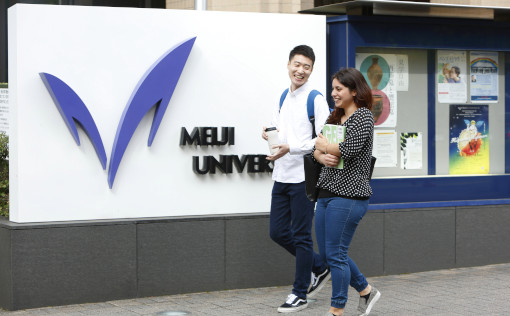-
-
-
- Undergraduate Schools
-
- School of Law
- School of Commerce
- School of Political Science and Economics
- School of Arts and Letters
- School of Science and Technology
- School of Agriculture
- School of Business Administration
- School of Information and Communication
- School of Global Japanese Studies
- School of Interdisciplinary Mathematical Sciences
-
-
-
-
- Graduate Schools & Professional Graduate Schools
-
- Graduate School of Law
- Graduate School of Commerce
- Graduate School of Political Science and Economics
- Graduate School of Business Administration
- Graduate School of Arts and Letters
- Graduate School of Information and Communication
- Graduate School of Science and Technology
- Graduate School of Agriculture
- Graduate School of Advanced Mathematical Sciences
- Graduate School of Humanities
- Graduate School of Global Japanese Studies
- Graduate School of Global Governance
- Graduate School of Governance Studies
- Graduate School of Global Business
- Graduate School of Professional Accountancy
- Juris Doctor Course (Law School)
-
-
- Resources for
Go Forward
Degree Programs in English
- Meiji University
- Admissions
- Degree Programs in English
What are the Degree Programs in English?
Undergraduate School

The School of Global Japanese Studies started its English Track program in 2011. In the SGJS English Track program, students can earn a bachelor's degree by taking courses conducted in English and they will select courses from various study fields to build their own unique, individualized curriculum. Students with a good command of Japanese can also take a wide range of courses taught in Japanese in the SGJS Japanese Track.
This program features a curriculum that focuses on contemporary Japanese studies. It contains three areas of concentration: Culture and Art, Business and Society, and Globalization. This curriculum also places emphasis on Japanese language education. A variety of Japanese language classes, from absolute beginner to upper-advanced, are offered and all these credits count towards graduation.

The School of Political Science and Economics (SPSE) started a double degree program with BIR Program of Faculty of Political Science, Thammasat University, in 2020. The SPSE and The Faculty of Political Science of Thammasat University has engaged in the student exchange program since 2013 and exchanged students each other. Building on this partnership, this double degree program has been developed for further collaboration between the two universities.
The students who participate in this double degree program may spend two years at their home university and two years in the host university, taking courses conducted in English, and may receive two bachelor’s degrees from both Meiji University and Thammasat University after completing the program successfully. While Thammasat University students can learn Japanese language during the program at Meiji University, those with a good command of Japanese language may also take courses conducted in Japanese offered by the SPSE.
Graduate School (Master’s Course)

- International Program in Architecture and Urban Design
I-AUD was launched in 2013 to train globally active professionals at the Nakano Campus of Meiji University. It is the first program in Tokyo to teach the field of advanced architecture and urban design in English. We aim to educate students to become skillful planners and designers who can act globally and professionally in international environments.

- International Double Masters Program (Universiti Teknologi Malaysia)
The aim of the Double Masters Program is to develop globally orientated human resources capable of meeting the demands of a rapidly internationalizing modern society. In addition, the program seeks to train graduates who, through the acquisition of both engineering and managerial expertise, embody a fusion of the arts and sciences essential for maintaining Japan’s technological excellence.

The three focus areas (Public Policy, International Development Policy, Community Planning and Management) of the Graduate School of Governance Studies aims at providing support to policy-making by government agencies and community residents through research and education in public policy studies.

- Global Business Programme (MBA) -Meiji Business School (MBS)-
Meiji Business School has a mission to produce the following graduates who can reenergize Japanese society and business. Imbued with a global outlook, centered on the Asian region, and an ethical approach to Corporate Social Responsibility, these graduates will be equipped with leadership skills and management expertise in general and specialized business areas.
- Owners, successors, and supporters for the growth of family businesses
- Those who take on start-up businesses and innovation including venture businesses and company renaissance
- General managers responsible for overall management of organizations as business managers, senior executives
Graduate School (Doctoral Course)

- International Program in Architecture and Urban Design
I-AUD was launched in 2013 to train globally active professionals at the Nakano Campus of Meiji University. It is the first program in Tokyo to teach the field of advanced architecture and urban design in English. We aim to educate students to become skillful planners and designers who can act globally and professionally in international environments.

- Mathematical Sciences Program
- Frontier Media Science Program
Mathematical Sciences Program aims at understanding complex phenomena in nature, including economic and social phenomena.
Frontier Media Science Program designs human interface and frontier media systems by constructing mathematical and scientific models of human sensibility and psychology.
Our graduate school cultivates professionals with the ability to adaptively manage challenges which arise in modern society.

The school offers “Public Policy”, “International Development Policy”, and “Community Management” programs.
By completing the doctoral program, the students will have sufficient skills for conducting research on global environmental issues, poverty reduction, human rights, democratic states, community revitalization and crisis management.
The school nurtures students' knowledge and ability for succeeding as professional scholars in the academic sector, high-ranking policy-makers in the government sector, and experts at international and non-governmental organizations.


